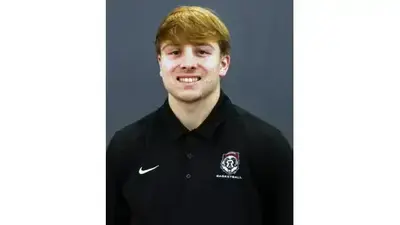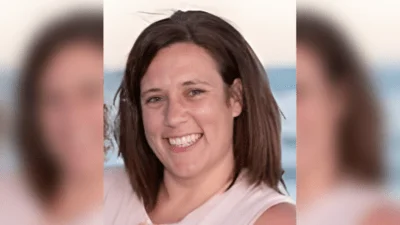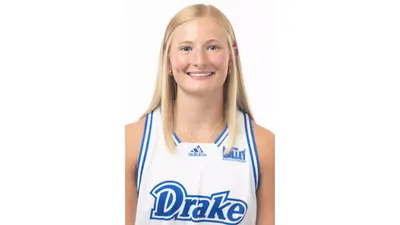DeKalb County Planning, Zoning & Development Committee met April 26.
Here are the minutes provided by the committee:
The Planning and Zoning Committee of the DeKalb County Board met on April 26, 2023 at 6:30 pm in the DeKalb County Legislative Center, Gathertorium, in Sycamore, Illinois. In attendance were: Committee Members: John Frieders, Rhonda Henke, Jim Luebke, Terri Mann-Lamb, Jerry Osland, Roy Plote, and Suzanne Willis; Community Development Department staff: Derek Hiland and Marcellus Anderson; and, Brian Gregory, DeKalb County Administrator. Also, in attendance were: Greg Millburg, manager of the DeKalb County Farm Bureau; James Hutcheson; John Lyon; Tim Hakes; and Katherine Andraski.
Call to Order / Roll Call
Ms. Mann-Lamb, Planning and Zoning Committee Chair, called the meeting to order. Mr. Osland arrived after Roll Call.
Approval of Agenda
Committee Action: Mr. Luebke moved to approve the agenda, seconded by Ms. Willis, and the motion carried unanimously.
Approval of the Minutes of the February 22, 2023 Planning, Zoning, & Development Meeting
Committee Action: Mr. Frieders moved to approve the minutes of the February 22, 2023 meeting, seconded by Ms. Willis, and the motion carried unanimously.
Public Comments
John Lyon commented on the Hearing Officer's Findings from the March 3, 2023 public hearing for the proposed update to the Sustainable Energy section of the County Code. He also talked about the need for a severability clause in the new language. He opined that instead of a new ordinance, language should have just been drafted indicating that the county would be in compliance with the State regulations. Mr. Lyon informed the Committee that the proposed trailer bill to HB4412 will have changes in it and will be passed. He finished by distributing copies of the testimony he gave at the public hearing.
Mr. Osland arrived and joined the meeting.
Katherine Andraski commented on HB4412 and iterated her issues with it. She also noted that she was not happy with the proposed trailer bills. She echoed Mr. Lyons comments regarding how the new ordinance should have been written.
Ordinances
Ordinance 20023-012 – Amending the Regulations for Sustainable Energy Systems
Mr. Hiland reminded the Committee that on January 27, 2023, new legislation (HB4412) was adopted by the State of Illinois establishing statewide standards for commercial wind and solar facilities on unincorporated lands within the State. He then talked about how the new legislation impacted the County's existing ordinances governing these uses, highlighting that the counties had until May 27, 2023 to bring their ordinances into compliance with the new regulations, otherwise they would have minimal say or control over these uses. He then talked about those areas that HB4412 still allowed the County some control over. Mr. Hiland informed the Committee that several groups were working on trailer bills to HB4412, and expressed his hopes that the State adopts any amendments to HB4412 prior to the May County Board meeting; that way the County can adopt any changes on the floor and amend the proposed text amendment language to reflect the revised State statute. Mr. Hiland informed the Committee that a public hearing was held on the proposed Text Amendment on March 3, 2023, and that the Hearing Officer was recommending approval.
Mr. Plote inquired whether the State's Community Solar program had set a new date, and whether there had been a new program allotment. Mr. Hiland responded that he had not heard anything about any changes to the State program.
Committee Action: Mr. Luebke moved to recommend approval of the proposed text amendment, seconded by Ms. Willis.
Mr. Frieders inquired whether anything was being said about the HB4412 and the changes being made. Mr. Hiland responded that he had been in touch with his counterparts in other counties and talked about what they had told him.
Mr. Frieders noted that taking no action would be not regulating them at all. Mr. Hiland responded that was correct and explained just what the County would be able to do and described some possible scenarios.
Mr. Frieders noted that many discussions had occurred regarding drainage districts and how they are affected by HB4412, and asked what it meant for drainage districts in the County. Mr. Hiland noted that this was one of the deficiencies in HB4412 and that this was one of the items being addressed in the trailer bills. He informed the Committee that he was aware of at least four separate interest groups writing their own recommended changes, and that he believed that all this would be putting pressure back on the State to address these issues. He also talked about the Agricultural Mitigation Agreements (AIMA) that facilities have to abide by.
Ms. Henke asked what would it mean for the County if the State alters a restriction in HB4412. Mr. Hiland explained that if it occurred before the County Board meeting, then the Board could incorporate the change before its adoption of the Text Amendment. However, if the change occurs after the County adopts the new legislation, Mr. Hiland stated he is hoping that the State also includes additional time for Counties to bring their codes into compliance, like they did with HB4412. Ms. Henke inquired whether HB4412 could be changed more than once. Mr. Hiland responded that the State could change it more than once, noting that the County had changed its own code previously.
Mr. Osland noted that he understood that thirty counties were not going to change their codes to comply. Mr. Hiland pointed out that only two counties have overtly stated that they would not do so. Mr. Osland inquired whether this would put these counties neck into a noose. Mr. Gregory described how the situation could play out, and talked about ways that developers could work with a county or community. It was also pointed out that the two counties not changing their codes could do so at a later date. Mr. Gregory noted that counties govern at the will of the State; explaining that by doing nothing, the two counties were just deferring regulation to the State.
Mr. Osland inquired whether the recently adopted battery ordinance was affected by HB4412. Mr. Hiland responded that it was not.
Ms. Willis inquired whether current projects follow current County regulations or the new regulations. Mr. Hiland explained that, per HB4412, any project submitted prior to the County adopting the new codes will be subject to current regulation. Anything submitted afterwards will follow the new regulations. He also noted that for those two Counties not doing anything, wind and solar facilities will become permitted uses.
Discussion was had as to how the 1.5-mile zoning jurisdiction of municipalities would be affected by the new regulations. Mr. Hiland noted that the new regulations do not allow counties to have jurisdiction over wind projects within the 1.5-mile zoning jurisdiction of a municipality. He described how this 1.5-mile zoning jurisdiction works with current County regulations, noting that currently county regulations control, with the municipalities only given a cursory review.
Mr. Plote inquired as to how brown field sites are affected by the new regulations. Mr. Hiland responded that he was unaware of anything that would affect the County's rules in that regard.
Mr. Osland inquired whether it was anticipated that applicants would rush to apply before the new regulations come into effect. Mr. Hiland responded that he did not believe that would be the case, as he feels the new regulations are more permissive than the current regulations. Mr. Osland then described a theory he had regarding things that might be happening behind the scenes.
Mr. Plote commented that he feels drainage districts need to be involved and made part of the new ordinance.
Mr. Frieders inquired whether there had been any more discussion regarding the proposed law suit against the new State regulations. Mr. Gregory responded that he had not heard anything new since the last Committee meeting when the States Attorney commented on it. Mr. Frieders inquired if the other counties have said anything. Mr. Hiland responded that it was going to be a topic discussed at the annual meeting of the Illinois Association of County Zoning Officials (IACZO) on Friday, April 28th. He noted that they were contemplating doing something, but no action had been taken as yet. Mr. Osland inquired whether they were waiting until after the deadline. Mr. Hiland responded that he believes they are waiting to see what happens with the trailer bills. Mr. Lyons commented that he was aware of changes that were being proposed and asserted that a trailer bill was going to go through.
Mr. Plote inquired about how many solar special use permits would come due after the new regulations are approved. Mr. Hiland answered that he did not know offhand, but he guessed about twenty or so. He was asked whether a developer would take the position to let their special use expire then reapply. He responded that he did not know if any would specifically do that. Mr. Plote added that if any did, they would have to go through getting a new special use and would have to negotiate new leases too. Mr. Osland commented that it might be worth it for some companies to do so, and elaborated on why he felt that might be the case.
Ms. Henke asked whether there was any sort of language that could be used that says that if the State changes HB4412, the County would comply, thus preventing having to always go back through the whole text amendment process to bring the language into compliance. Mr. Hiland described the disadvantages of taking such an approach versus the benefits of the approach that was taken and the protections it provides. Mr. Gregory also elaborated on how using a text amendment allows to County to flesh out the State regulations. Ms. Willis pointed out the proposed text amendment included a new subsection 53-E-12.D, which appeared to address this issue.
Mr. Plote inquired whether the County would be able to meet the timeline requirements imposed by HB4412. Mr. Hiland noted that our current timeline does not meet the new requirements, but explained that he believes that developers will work with the County on it, and talked about why he felt it was the case. He also noted that it was one of the issues being addressed by the trailer bills.
Mr. Plote inquired what the penalties would be if the County did not follow the new State regulations. Mr. Hiland explained that it would open the County up to litigation by developers.
Ms. Henke inquired who would be enforcing the rules if a developer violates them. Mr. Hiland responded that the County would enforce the rules, and then talked about how the violation process would work.
Committee Action: A Roll Call Vote was had on the motion to recommend approval of the text amendment, and the motion carried unanimously.
Resolutions
none
Considerations / Discussion Items
Zoning Ordinance Severability Clause
Mr. Hiland informed the Committee that questions had been raised by the County Board regarding whether a severability clause needed to be added to the proposed text amendment language, and the Committee had been tasked to address the matter. He also discussed the language that had been suggested by Mr. Lyon. Mr. Hiland pointed out that both the DeKalb County Code and DeKalb County Zoning Ordinance (which is a section the County Code) already have severability clauses written into them. He advised that the existing severability clauses should be more than enough to cover the new text language, but noted that if the Committee would like to see additional language added, staff would do so.
Mr. Frieders verified that the existing severability clauses would cover the new language. Mr. Hiland verified that it would.
Ms. Henke inquired whether another hearing would have to be held if the State makes a major change to the new regulations. Mr. Hiland responded that he would recommend, out of an abundance of caution, that the County did so. Ms. Henke commented that the severability clause allowed for this to happen. Mr. Hiland explained that the severability clause actually protects the rest of the code were a portion of it found to be in violation of or out of compliance with State or Federal statutes. The ability to go schedule a hearing to make a text amendment change is something the County already has the right to do.
Mr. Hiland inquired whether the Committee wanted to add additional more severability language or not. The Committee indicated that it was ok with the existing severability language.
Old Business
none
New Business
none
Adjournment
Ms. Willis moved to adjourn the meeting, seconded by Mr. Luebke, and the motion carried unanimously.
https://dekalbcounty.org/wp-content/uploads/2023/05/minutes-pz-04262023.pdf





 Alerts Sign-up
Alerts Sign-up